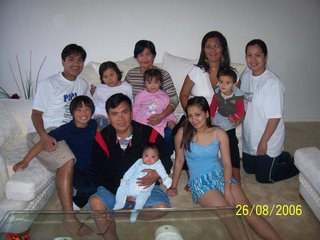12:00am
Gifts
I’m sure we are all excited unwrapping all the gifts we received today and gifts we will receive tomorrow. We are excited to find out what we gifts will get this Christmas. Inasmuch as Christmas is about gift giving, Christmas is also receiving gifts. This Christmas you may get a new pair of shoes, Barbie dolls, t-shirts, i-pods, box of chocolates and so on. Gifts really make us feel happy and excited. So we thank our mum and dad, our husband and wife, family and loved ones for being so thoughtful this Christmas.
However, let us not forget the greatest gift and the most important gift, we all receive this Christmas. This Christmas gift is not wrapped by fancy coloured paper rather this gift is wrapped by swaddling clothes. This gift doesn’t come from an expensive store but you’ll find this gift lying in a manger in a cold winter night.
And this Christmas gift is more than anything else in this world and yet often neglected.
The gift we receive every time we celebrate Christmas is no other than a newly born baby who is the source of our joy, peace and love, and his name is Jesus.
This midnight, in this Mass we celebrate the moment when the whole humanity received the gift of salvation through the birth of Jesus 2000 years ago.
My dear friends, Christmas is about God giving us the most precious gift no one could offer. God gave us his only Son on the first Christmas not as a visitor but he became one of us and he never left. Christmas is about God coming down to be one of us and one with us, going as deep into our lives as he can, and as deeply as we will let him.
Light and Darkness
The readings we have this midnight speak of darkness followed by light. There is interplay between the darkness – as an image of fear, and light – as an image of joy.
Before the world was filled with the darkness of sin but on the first Christmas day, when the child Jesus is born, the light of God’s salvation shine in the whole world. As the prophet Isaiah says: “The people who walked in darkness have seen a great light.”
In the Gospel, the shepherds were “keeping the night watching over their flock” they were in darkness but suddenly an angel of the Lord appeared to them and they were bathed in a great light.
And, when angel Gabriel appeared to Mary to announce that she was chosen to be the Mother of God, she was filled with darkness of fear. But after she gave birth to her Son, Mary’s heart is now filled with joy. The light of the Child Jesus shine upon her Mary and it remained with her forever.
Darkness and Light in our Life
In our lives too, sometimes we find ourselves in our own darkness: the darkness of sin, pride, selfishness and lack of forgiveness. We also have our own fear and insecurities; we suffer anxiety and depression; sometimes our hearts are full of anger and hate.
Today/this midnight, let the light of first Christmas shine in our lives. Let the Star of Bethlehem shining brightly on earth this midnight overcome our own darkness and sorrows.
Let the angel’s message to the shepherd and to Mary rings out once more with new strength: “Do not be afraid.”
Do not be afraid…because our Saviour is born today.
Do not be afraid… because our Saviour brings us joy, hope and peace.
Emmanuel: Glory to God in the Highest!
So my dear friends, let us not be afraid, but let rejoice now that God’s greatest gift is with us – the Emmanuel. That means God who is with us. God who is not beside us always, but God within us, always, as love – incredible love, unconditional, unwavering love, that will never abandon us, never leave us, ever again.
Our confidence cannot be shaken, nor can our wonder at what we are celebrating ever fade.
Today is born the One who brings peace to the world.
So together with the choirs of angels, let us proclaim and bring the good of news of God’s gift of salvation, as we say:
“Glory to God in the highest and on earth peace to those on whom his favor rests.”
Amen.














